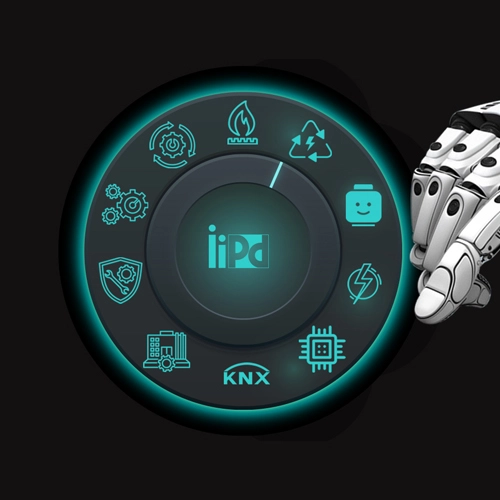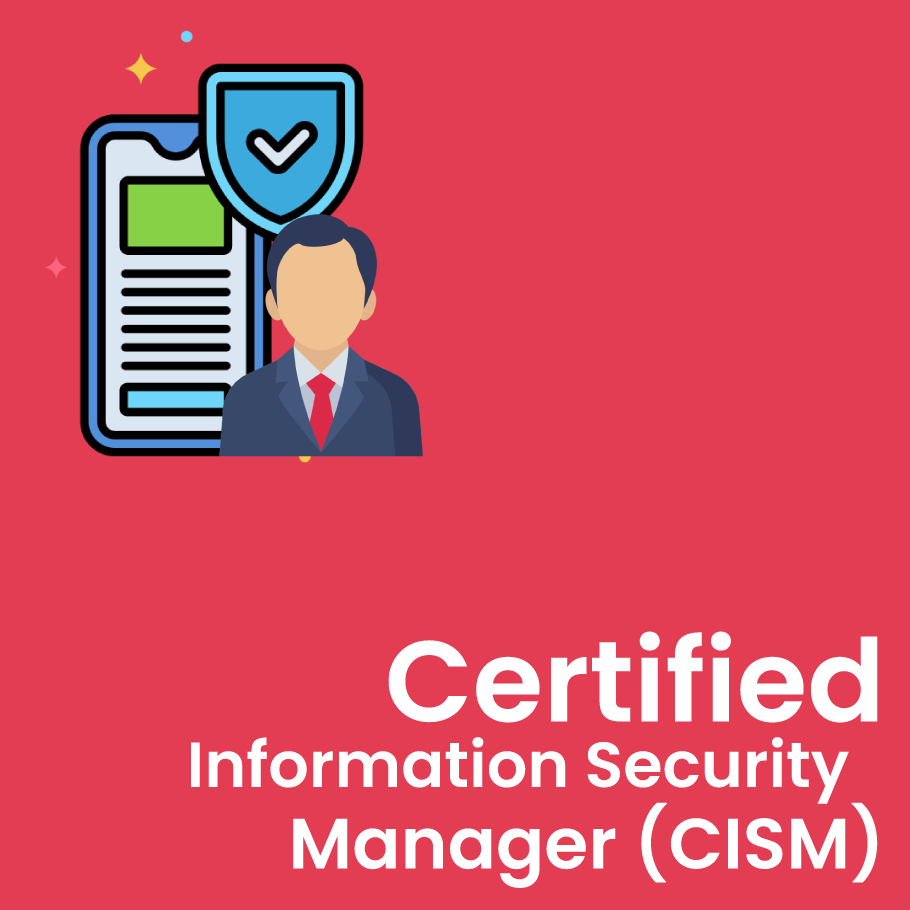Looking to enhance your career in information security and cybersecurity? Look no further! IIPD Global, a leading training institute in Dubai, UAE, offers top-notch CISM (Certified Information Security Manager) Training to help you gain the expertise needed to excel in this rapidly evolving field.
Our comprehensive course equips you with the skills to safeguard sensitive information and mitigate security risks effectively. With our SEO-optimized and engaging training, you'll delve into various crucial aspects, including information risk management, incident response, and governance, while mastering the fundamentals of cybersecurity governance.
Course Outline:
Our CISM training at IIPD Global is meticulously designed to cover all essential topics, ensuring you are well-prepared for the CISM certification exam. The course comprises the following modules:
Module 1: Organisational Culture
- About Information Security Governance
- Reason for Security Governance
- Security Governance Activities and Results
- Risk Appetite
Module 2: Legal, Regulatory, and Contractual Requirements
- Introduction
- Requirements for Content and Retention of Business Records
- Module 3: Organisational Structures, Roles and Responsibilities
- Roles and Responsibilities
- Monitoring Responsibilities
Module 4: Information Security Strategy Development
- Introduction
- Business Goals and Objectives
- Information Security Strategy Objectives
- Ensuring Objective and Business Integration
- Avoiding Common Pitfalls and Bias
- Desired State
- Elements of a Strategy
Module 5: Information Governance Frameworks and Standards
- Security Balanced Scorecard
- Architectural Approaches
- Enterprise Risk Management Framework
- Information Security Management Frameworks and Models
Module 6: Strategic Planning
- Workforce Composition and Skills
- Assurance Provisions
- Risk Assessment and Management
- Action Plan to Implement Strategy
- Information Security Program Objectives
- Domain 2: Information Security Risk Management
Module 7: Emerging Risk and Threat Landscape
- Risk Identification
- Threats
- Defining a Risk Management Framework
- Emerging Threats
- Risk, Likelihood and Impact
- Risk Register
Module 8: Vulnerability and Control Deficiency Analysis
- Introduction
- Security Control Baselines
- Events Affecting Security Baselines
Module 9: Risk Assessment and Analysis
- Introduction to Risk Assessment and Analysis
- Determining the Risk Management Context
- Operational Risk Management
- Risk Management Integration with IT Life Cycle Management Processes
- Risk Scenarios
- Risk Assessment Process
- Risk Assessment and Analysis Methodologies
- Other Risk Assessment Approaches
- Risk Analysis
- Risk Evaluation
- Risk Ranking
Module 10: Risk Treatment / Risk Response Options
- Introduction to Risk Treatment / Risk Response Options
- Determining Risk Capacity and Acceptable Risk (Risk Appetite)
- Risk Response Options
- Risk Acceptance Framework
- Inherent and Residual Risk
- Impact
- Controls
- Legal and Regulatory Requirements
- Costs and Benefits
Module 11: Risk and Control Ownership
- Risk Ownership and Accountability
- Risk Owner
- Control Owner
Module 12: Risk Monitoring and Reporting
- Risk Monitoring
- Key Risk Indicators
- Reporting Changes in Risk
- Risk Communication, Awareness and Consulting
- Documentation
- Domain 3: Information Security Program Development and Management
Module 13: Information Security Program Resources
- Introduction to Security Program Development and Management
- Information Security Program Objectives
- Information Security Program Concepts
- Common Information Security Program Challenges
- Common Information Security Program Constraints
Module 14: Information Asset Identification and Classification
- Information Asset Identification and Valuation
- Information Asset Valuation Strategies
- Information Asset Classification
- Methods to Determine Criticality of Assets and Impact of Adverse Events
Module 15: Industry Standards and Frameworks for Information Security
- Enterprise Information Security Architectures
- Information Security Management Frameworks
- Information Security Frameworks Components
Module 16: Information Security Policies, Procedures, and Guidelines
- Policies
- Standards
- Procedures
- Guidelines
Module 17: Information Security Program Metrics
- Introduction to Information Security program Metrics
- Effective Security Metrics
- Security Program Metrics and Monitoring
- Metrics Tailored to Enterprise Needs
Module 18: Information Security Control Design and Selection
- Introduction
- Managing Risk Through Controls
- Controls and Countermeasures
- Control Categories
- Control Design Considerations
- Control Methods
Module 19: Information Security Control Implementation, Integration, Testing, and Evaluation
- Introduction
- Baseline Controls
- Introduction
- Control Strength
- Control Recommendations
Module 20: Information Security Awareness and Training
- Security Awareness Training and Education
- Developing an Information Security Awareness Program
- Role Based Training
Module 21: Management of External Services
- Governance of Third-Party Relationships
- Third Party Service Providers
- Outsourcing Challenges
- Third-Party Access
Module 22: Information Security Program Communications and Reporting
- Program Management Evaluation
- Plan-Do-Check-Act Cycle
- Security Reviews and Audits
- Compliance Monitoring and Enforcement
- Monitoring Approaches
- Measuring Information Security Management Performance
- Ongoing Monitoring and Communication
- Domain 4: Incident Management
Module 23: Incident Response Plan
- Introduction to Incident Response Plan
- Relationship Between Incident Management and Incident Response
- Goals of Incident Management and Incident Response
- Incident Handling and Management Life Cycle
- Incident Management and Incident Response Plans
- Importance of Incident Management
- Outcomes of Incident Management
- Incident Management Resources
- Policies and Standards
- Incident Management Objectives
- Strategic Alignment
- Response and Recovery Plan
- Role of Information Security Manager in Incident Management
- Risk Management
- Assurance Process Integration
- Value Delivery
- Resource Management
- Defining Incident Management Procedures
- Detailed Plan of Action for Incident Management
- Current State of Incident Response Capability
- Developing and Incident Response Plan
- Incident Management Response Teams
- Organising, Training and Equipping the Resource Staff
- Incident Notification Process
- Challenges in Developing an Incident Management Plan
Module 24: Business Impact Analysis
- Introduction to Business Impact Analysis
- Elements of Business Impact Analysis
- Benefits of Conducting a Business Impact Analysis
Module 25: Business Continuity Plan
- Integrating Incident Response with Business Continuity
- Methods for Providing Continuity of Network Services
- High-Availability Considerations
- Insurance
Module 26: Disaster Recovery Plan
- Introduction to Disaster
- Business Continuity and Disaster Recovery Procedures
- Recovery Operations
- Evaluating Recovery Strategies
- Addressing Threats
- Recovery Sites
- Basis for Recovery Site Selection
- Response and Recovery Strategy Implementation
Module 27: Incident Classification/Categorisation
- Introduction to Incident Classification/Categorisation
- Escalation Process for Effective Incident Management
- Help/Service Desk Processes for Identifying Security Incidents
Module 28: Incident Management Training, Testing and Evaluation
- Incident Management Roles and Responsibilities
- Incident Management Metrics and Indicators
- Performance Measurement
- Updating Recovery Plans
- Testing Incident Response and Business Continuity/Disaster Recovery Plans
- Periodic Testing of the Response and Recovery Plans
- Testing for Infrastructure and Critical Business Applications
- Types of Tests
- Test Results
- Recovery Test Metrics
Module 29: Incident Management Tools and Technologies
- Incident Management Systems
- Incident Response Technology Foundations
- Personnel
- Skills
- Awareness and Education
- Audits
- Outsourced Security Providers
Module 30: Incident Investigation, Evaluation, and Containment Methods
- Introduction
- Executing Response and Recovery Plans
- Introduction to Incident Containment Methods
Module 31: Incident Response Communication, Eradication, and Recovery
- Introduction to Incident Response Communication
- Notification Requirements
- Communication Networks
- Eradication Activities
- Recovery
Module 32: Post-Incident Review Practices
- Introduction Post-Incident Review Practices
- Identifying Causes and Corrective Actions
- Documenting Events
- Establishing Legal Procedures to Assist Post-Incident Activities
- Requirements for Evidence
- Legal Aspects of Forensic Evidence
Prerequisites and Eligibility Criteria:
To enroll in our CISM training, participants must have a minimum of five years of work experience in information security management, with at least three years in the role of an information security manager. Alternatively, a waiver of up to two years is available based on education and other certifications.
Conclusion:
Elevate your career in the ever-evolving world of cybersecurity with IIPD Global's CISM Training in Dubai, UAE. Don't miss this opportunity to enhance your expertise and unlock numerous career prospects. Enroll now and take the first step toward a brighter future in information security!







